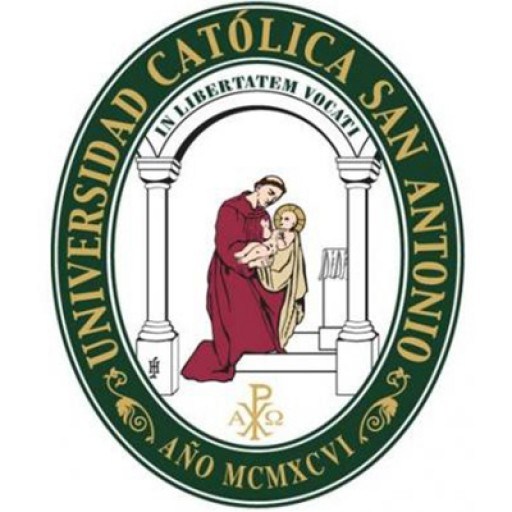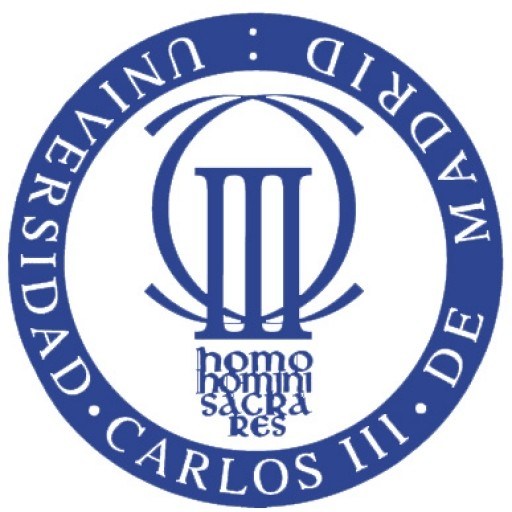Photos of university
The Bachelor's Degree in Bioinformatics for Health Sciences at Pompeu Fabra University is a multidisciplinary program designed to equip students with the essential skills and knowledge necessary to analyze and interpret biological data within the context of health and medicine. This innovative program integrates principles from biology, computer science, mathematics, and statistics to address complex biological questions through computational methods. Students will explore topics such as molecular biology, genomics, proteomics, computational modeling, and data analysis, enabling them to contribute to advancements in personalized medicine, clinical research, and healthcare innovation. The curriculum emphasizes practical training through laboratory work, computational projects, and collaborations with research centers and hospitals, providing real-world experience. Graduates of this program will be prepared for careers in biomedical research, bioinformatics analysis, drug development, and health data management. The program also fosters critical thinking, problem-solving skills, and a deep understanding of ethical considerations related to health sciences and bioinformatics applications. With instruction delivered by experienced faculty members and access to state-of-the-art facilities, students will be well-equipped to pursue further studies or enter the rapidly evolving job market in health-related bioinformatics. Furthermore, the program encourages interdisciplinary collaboration, emphasizing the importance of teamwork and communication in addressing global health challenges. Upon completion, students will hold a comprehensive foundation in bioinformatics tailored specifically for health sciences, positioning them at the forefront of biomedical innovation and personalized healthcare solutions.
Module I: Economic and Social Aspects of Research
- Research Project Design and Management
- Science in Action
Module II: Research Project I
- Introduction to the Preparation of Research Projects
Module III: Research Project II
- Master's Degree Final Project
Module IV: Genome Bioinformatics
- Principles of Genome Bioinformatics
- Advanced Genome Bioinformatics
- Extraction of Information Technologies "OMICS"
Module V: Molecular Structure and Function
- Structural Bioinformatics
- Molecular Simulations
- Computer-Aided Drug Discovery
Module VI: Biological Aspects of Pathology
- Molecular Pathology of Systems
- Molecular and Cellular Pathology
Module VII: Biomedical Computing
- Applied Genomics: Genome-Phenome Analysis for Human Health
- Computational Systems Biology
- Analysis of Biomedical Images
Module VIII: Elements of Programming
- Introduction to PERL
- Databases and Web Design
- Introduction to Python
- High Performance Programming
- Introduction to Algorithms
Module IX: Basic Tools in Biocomputing
- Elements of Biocomputing
- Biomedical Data Analysis
- Elements of Mathematics
- Advanced Biocomputer Science Seminars
- Model Organisms in Biomedicine
- Genomes and Systems
- Cell Communication
- Genes and Cell Function
Module X: Computational Neuroscience
- Visual Perception and Recognition
- Computational Neuroscience
Module XI: Elements for Biomedicine
- Introduction to Biomedicine
Requirements
- Official undergraduate degree/diploma (or a bachelor's degree, a degree in engineering or architecture, diplomas, technical engineering and technical architecture diplomas, or, for foreign qualifications, the equivalent qualification awarded by an accredited higher education institution) and the academic transcript of the accredited official training with the average grade at the university of origin. Qualifications can be in the following academic areas: Biology, Medicine, Biochemistry, Biotechnology, Pharmacy, Veterinary studies, engineering studies, Chemistry, Physics or Mathematics or related degrees.
- Curriculum Vitae in English.
- A letter of motivation in English, stating the candidate's interest in following the master's programme (400 to 600 words).
- A (professional or academic) letter of recommendation signed by someone who really knows the candidate and can assess them. In order to optimise the treatment and security of the recommendation letters, the candidate will have to request those via the online application system, where he/she will need to indicate the e-mail adress of the person/the persons he/she wishes to be recommended by. That person will receive an e-mail indicating that the candidate wishes a recommenation letter from him/her. The letter will be uploaded by the referee in the online application system. Non-institutional addresses such as *yahoo, *gmail, *hotmail, etc... will not be accepted.
- Identity Card or Passport.
- Proof of English language (level B2). English: official Cambridge certificates (FCE or higher), with results of 6.0 at IELTS or 100 at TOEFL (iBT), will be accepted, among others.
- Professional experience in any of the fields related to the master's programme.(optional)
- Research experience.(optional)
- Teaching experience. (optional)
- Additional academic training in areas related to the master's programme.(optional)
Scholarships
- GRAL - General scholarships for students enrolled on post-compulsory studies.
- MATRC - Financial credential for the purposes of processing university enrolments without prior payment of the public prices for the academic services.
- UPF - Tuition fee scholarship for university master's degree students
- Global Education
The Bachelor's Degree in Bioinformatics for Health Sciences at Pompeu Fabra University is a multidisciplinary program designed to equip students with the essential skills and knowledge necessary to analyze and interpret biological data, particularly in the context of healthcare and medical research. This program combines elements of biology, computer science, mathematics, and statistics to provide a comprehensive education in bioinformatics, which is increasingly vital in the era of personalized medicine and biomedical research.
Throughout the course, students will learn to develop algorithms, computational tools, and data analysis methods suited for managing complex biological datasets such as genomic, proteomic, and metabolomic data. The curriculum emphasizes practical applications, enabling students to apply their skills to real-world problems in healthcare settings. This includes training in programming languages like Python and R, tools for data visualization, and machine learning techniques relevant to biomedical data analysis.
The program also covers foundational subjects such as molecular biology, genetics, and biochemistry, ensuring students understand the biological basis of the data they work with. Meanwhile, courses in mathematics and statistics prepare students to handle data modeling, statistical inference, and quantitative analysis essential for research in health sciences. Ethical considerations and data privacy are integrated into the coursework to prepare students for responsible conduct in biomedical research.
Students will have opportunities for hands-on experience through laboratory work, internships, and collaborative projects with healthcare institutions or research centers associated with Pompeu Fabra University. These practical components aim to develop competencies in data management, software development, and interdisciplinary communication, preparing graduates for careers in research institutions, hospitals, pharmaceutical companies, or biotech startups.
The program is designed to be versatile, with graduates qualifying for roles such as bioinformatics analyst, computational biologist, research scientist, or data scientist within health-related sectors. Students are also prepared for advanced studies or specialization through master’s programs in bioinformatics, computational biology, or related fields.
Pompeu Fabra University’s strategic location in Barcelona, a hub for biomedical research and innovation, offers students excellent networking opportunities, collaborations with industry, and access to cutting-edge research facilities. The university’s emphasis on innovation and interdisciplinary education ensures that graduates of this program are well-equipped to contribute to advancements in health sciences through computational approaches.
Overall, the Bachelor's Degree in Bioinformatics for Health Sciences at Pompeu Fabra University provides a rigorous, research-oriented education that combines theoretical fundamentals with practical skills, making it an ideal choice for students interested in advancing healthcare through computational biology and data science.




